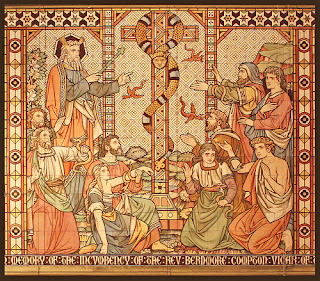Here are some other questions I ask when I’m reading:
What message did the author want to me to get through this story - a quality of God, or Jesus, or faithful discipleship, or whatever?
What message do the organizers of the lectionary want me to get?
What are they leaving out, and how does it change the message of the Scriptures?
And what do I think about that? Do I agree that we are better off without this story, or is this a loss?
When the lectionary skips some section, go back and read what they left out. The readings from Acts are a great example.
Yesterday we read the inspiring depiction of the community of believers. Everyone shared, no one went hungry, Barnabas was generous. Life was good: so good some of us have been trying to live that way ever since!
Then today we are supposed to read about signs and wonders, about miracles of healing and of bravery. Again, something to be inspired by and aspire to.
But in between, we have something a little different. Ananias and Sapphira stand as warnings of what can happen when people pretend to be committed, when they withhold, when they lie. It’s not a pretty story, but it’s important. Lies and secrets do indeed corrode a community, more than many other infractions. So why is this story elided?
I’m not sure. Perhaps the lectionary committee did not want us to consider such a dangerous God. The problem isn’t with God’s power; we’re happy to read about signs and wonders. But I suspect that we in the “mainline” churches have become so allergic to the vengeful God of some quarters that we can’t stomach any hint of a punishing God.
Eastertide is the season of the big carrot: resurrection life. But we need sticks too, sometimes, to stay on the path. We need promises, and we need warnings. We don’t have to believe in a literal killing God to get the truth of the cost of being dead to God and to life-giving community. If you are one of those who think resurrection is a metaphor, then let this story dwell in you as well. Is there a secret part of yourself you’re withholding from God or important others in your life? Now is the time to let it go. It won’t get better later.
We now return to our regularly scheduled readings. Thanks be to God for all of it!















